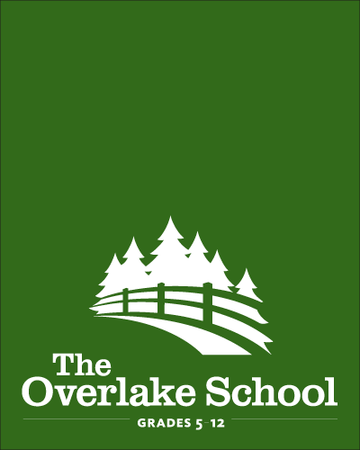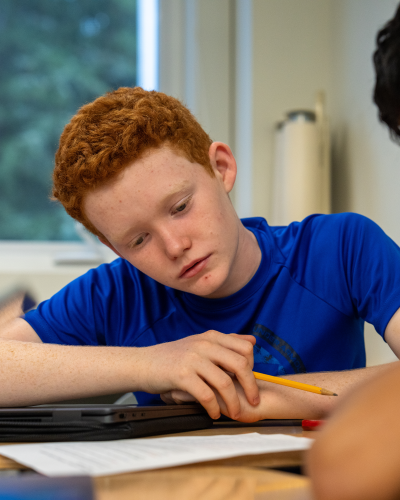School General Illness Policy
For the health and well-being of our community, students must remain home when ill. Students who come to school ill, will be sent home to rest and recover.
If your student exhibits any of the following general illness symptoms, they must remain home, but can return to school when symptom free:
- Fever > 100° F or chills [For fevers, individuals must be fever free for at least 24 hours (unmedicated) to be able to return to school]
- Cough (not related to asthma or seasonal allergies)
- Shortness of breath or difficulty breathing
- Persistent muscle or body aches
- Sore throat
- Congestion or runny nose (not related to allergies)
- Nausea, vomiting, or diarrhea
- Rash, especially with fever or itching, or a rash that is weeping, oozing, or widespread, unless cleared by a medical provider
- Head lice (until treatment is started)
- *Contagious diseases such as: chicken pox, strep throat, mono, whooping cough, pink eye, impetigo, ringworm, hand/foot/mouth, scabies etc., until treated and/or cleared to return by a medical provider
If your student has any of the above mentioned symptoms or conditions, keep them home and write an email to attendance@overlake.org to inform the school that the student is home ill.
Again, students may return to school once they are symptom free.
*If your student is diagnosed with a contagious disease such as headlice, norovirus, COVID, hand/foot/mouth disease, pertussis or varicella, these must be reported to Dr. Hillyer, Director of Health and Wellness email at shillyer@overlake.org, so that appropriate procedures and contact notifications can be made if necessary.
Students who are ill or injured and will be out over 5 days should inform the learning support team, Crissy Stemkowski (cstemkowski@overlake.org) and Jennifer Friend (jfriend@overlake.org) so the student may receive academic support upon their return to campus.
COVID ILLNESS INFORMATION:
We continue to monitor local public health agencies and our community in regard to COVID outbreaks and spread. If your student experiences any overlapping symptoms of COVID, as any other illness, please keep your student home to rest and recover.
If a person tests positive for COVID, they should follow the King County Public Health Guidelines What to do if you test positive for COVID19 guidance. Students, children, and staff who were exposed and who do not develop symptoms or test positive may continue to participate at school.
For project week participation, the above policies and procedures apply and students will be unable to participate if ill. In addition, for those traveling domestically and internationally, students testing positive for COVID will need to be picked up at their destination within 36 hours of notification to parent/guardian/emergency contact.
Overlake's definition of Well-Being
At Overlake, we aspire to prioritize the well-being of all community members, including our students, employees, and parents/guardians. Well-being is a series of skills or abilities that form a critical foundation for success, belonging, and thriving. Our definition includes numerous types of well-being, and we hope individuals can fluidly prioritize and re-prioritize each component to ultimately find holistic well-being. We define well-being for our community members as follows:
- Social Well-being is the ability to build healthy relationships and genuine connections while maintaining boundaries through verbal and non-verbal communication.
- Physical Well-being is the ability to prioritize and maintain practices that contribute to a healthy body and mind, encompassing regular exercise, balanced nutrition, and sufficient restorative sleep. It includes fostering habits that optimize physical health to promote overall vitality and resilience.
- Academic/Intellectual Well-being is the ability to expand knowledge and support lifelong learning. It includes balancing academic and professional workloads, preparing and organizing for the future, utilizing resources to make decisions, demonstrating curiosity, welcoming new academic and professional challenges, and meeting academic and professional goals in a healthy way.
- Community Well-being is the ability to cultivate a sense of shared responsibility for our community and campus, fostering belonging by building cultural awareness, positive relationships, and respectful interactions. It also includes instilling a sense of pride in our community and nurturing an environment where everyone feels valued, empowered, and has a sense of belonging.
- Emotional Well-being is the ability to be aware of emotions in self and others, giving all the permission to feel and express emotion, building psychological habits and resources to build resilience, and executing strategies that help build mindfulness and find joy.
Contact: Director of Health & Wellness
Contact
Samantha Hillyer ('01)
Director of Health & Wellness
shillyer@overlake.org
425-602-7077



